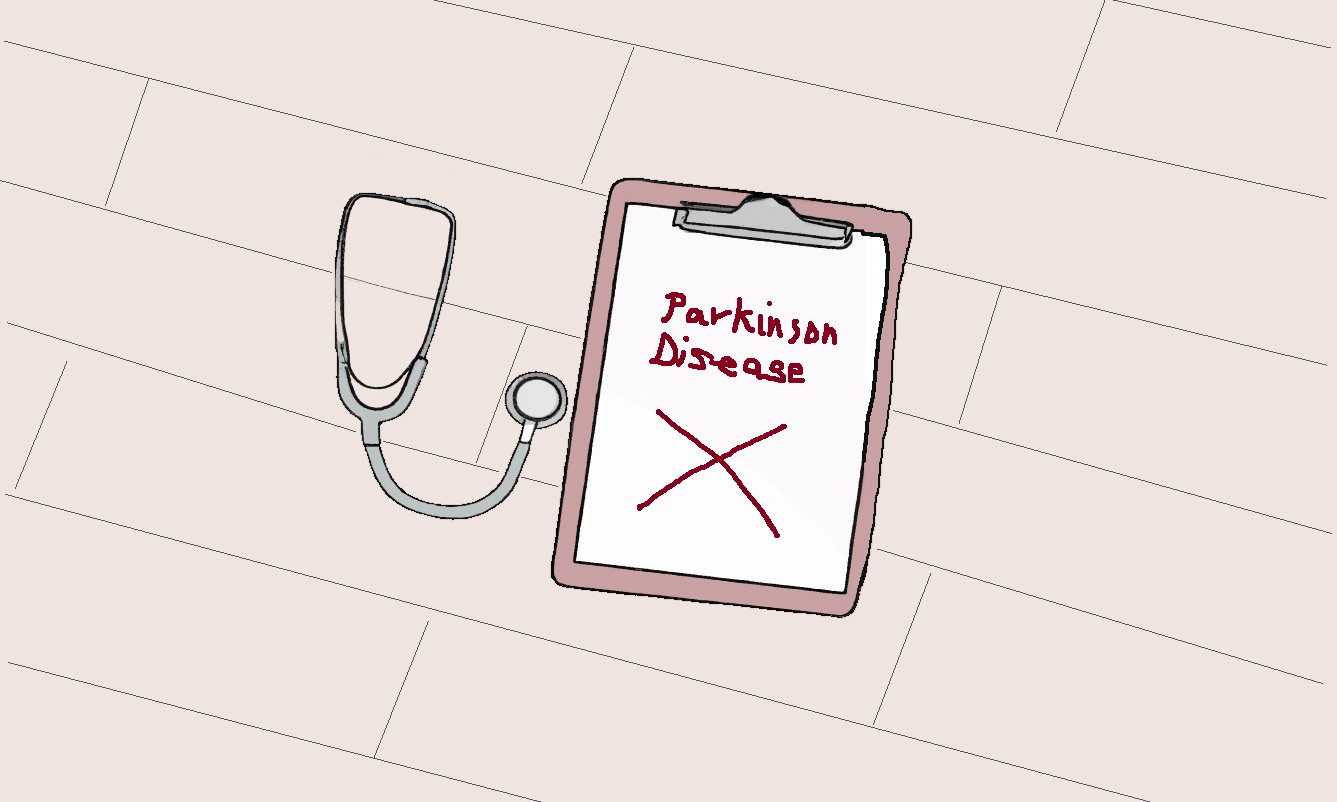Table of Contents
You are reading this probably because you or someone you know was given an unfavorable diagnosis. Devastated of the bad news, it’s hard to put thoughts together and make sense of what is going on. Anyone can easily feel fear, sadness, and uncertainty about the future. Millions of questions will pop up about every aspect of life. So how does one should handle bad news?
When we were given my mom’s diagnosis of Parkinson’s Disease years ago, it felt like it’s end of the world. It felt as if she had been taken away from us and there was nothing we can do about it.
I wish we asked
- What is it?
- How did I get it?
- How bad is it?
- Is it terminal/deadly?
- Is it curable?
- Is it manageable?
- Are you sure?
- How will it affect my daily life?
- Movement?
- Speech?
- Pain?
- Decision making?
- Daily chores?
- Relationships?
- Work?
- What kind of support will I be needing?
- Specialists?
- Movement disorder
- Psychologist/Psychiatrist
- Cardiologist
- Therapist (Speech, physical, occupational)
- Integrative
- Hollistic
- Homeopathic
- Family and friends?
- Groups?
- Caregiver?
- What should/can I do (naturally)?
Knowing the answers to these questions provides a lot clearer look into the future and helps with planning accordingly, besides, medical diagnosis are not death sentences. And this is especially true for Parkinson’s patients. There are natural ways to manage this disease and still maintain a quality life.
I wish we were told
- You are not alone: A medical diagnosis can feel isolating, but it’s important to remember that many others are facing similar challenges. Reaching out to support groups can help provide a sense of community and comfort.
- You have options: An unfavorable medical diagnosis does not define your future. Work with your doctor to understand the treatment options available to you, and consider seeking a second opinion if necessary. Doctor’s will not enumerate every option that you may have (not because they do not want what’s best for you, but they probably are not comfortable sharing information that they are not expert in). Make sure to do your own research (trusting only legitimate sources), and seek for natural alternatives first.
- It’s okay to grieve: Receiving a diagnosis can be a difficult and emotional experience, and it’s okay to feel sad, scared, or overwhelmed. Give yourself time to process your feelings and seek support from loved ones or a mental health professional if needed. Know that grieving is a process. Different process for different people. Grieving the life you once knew is normal.
- Focus on what you can control: While a medical diagnosis can be overwhelming, it’s important to focus on what you can control, such as making changes to your lifestyle or following through with recommended treatments.
- You can still have a good quality of life: With the right support and resources, you can maintain your quality of life and continue to live your life to the fullest, despite a medical diagnosis.
- Don’t be afraid to ask for help: It’s okay to need help, and reaching out to others for support can be incredibly beneficial. This could include friends, family, support groups, or professional counseling services.
- Maintaining a positive outlook can improve your chances of recovery: While a medical diagnosis can be challenging, it’s important to stay positive and optimistic. This can help improve your outlook, reduce stress, and increase your chances of recovery. Pursuing hobbies can be beneficial as well.
- Every journey is different: Every person’s journey with a medical diagnosis is unique, and it’s important to be patient and gentle with yourself. Focus on the things that are most important to you, and prioritize what matters most in your life.
- Plan for the future: It is important to think about the future and to plan for your long-term care and support. This may involve making financial arrangements, creating a support network, and planning for future medical needs. Creating a living will, and other important documents for your family.
- Eat a balanced diet: A balanced diet is important for overall health, and can also help manage symptoms of Parkinson’s. Foods that are high in fiber, and antioxidants can help maintain energy levels, improve mood, and reduce the risk of other health problems. Taking supplements is also beneficiary for patients.
- Get enough sleep: Sleep is important for overall health and well-being, and it is especially important for people with Parkinson’s. Good sleep habits, such as establishing a regular sleep schedule and creating a comfortable sleep environment, can help improve sleep quality and reduce symptoms.
Parkinson’s Disease Focus
- Parkinson’s is a progressive movement disorder but it is important to remember that each person’s experience with Parkinson’s is unique. Symptoms are not limited to movement. Parkinson’s disease (and synthetic medications) will affect mental capabilities, such as decision making, focus, empathy, etc. It will also affect speech, hypertension, bowel movement, appetite, and others. If not managed well, this disease will impact the patient’s quality of life, including the life of the people around the patient.
- Treatment options are available: There are a variety of treatments available for Parkinson’s, including medication, therapy, and surgery. While there is currently no cure for Parkinson’s, these treatments can help manage symptoms and improve quality of life. From my family’s experience, I would suggest trying natural alternatives first before diving into synthetic medications and surgeries.
- Take care of your mental health: Parkinson’s can have a significant impact on mental health, and it is important to take steps to manage symptoms of depression, anxiety, and other mental health concerns. Talking to a therapist, joining a support group, or practicing mindfulness and relaxation techniques can help improve mental health and reduce symptoms of Parkinson’s.
- Exercise is important: Exercise is a crucial part of managing Parkinson’s, helping to maintain mobility, flexibility, balance, coordination and reduce symptoms such as stiffness and tremors. Regular exercise, such as physical therapy, dance, Tai Chi, or yoga, can help improve overall health and well-being, and reduce the risk of other health problems.
- Medications can have side effects: While Parkinson’s medications can be effective in managing symptoms, they can also cause side effects such as nausea, dizziness, and sleep disturbances. It is important to discuss any side effects with your doctor and work together to find the right medication regimen for you. Identify if the suggested medication’s side effects are more tolerable than your current symptoms. If not, veer off from taking such, especially for long term purposes.
- Parkinson’s can impact daily activities: Parkinson’s can affect a person’s ability to perform everyday tasks, such as bathing, dressing, and cooking. Adaptive devices, such as canes or walkers, and home modifications are helpful.
- Learn as much as you can about Parkinson’s: The more you know about Parkinson’s, the better equipped you will be to manage your symptoms and make informed decisions about your care. You can learn about Parkinson’s by talking to your doctor, reading books and articles, and joining support groups. If you have been diagnosed with Parkinson’s, it is important to seek a second opinion from another healthcare provider, Naturopathic doctors and Homeopathic doctors. This will help ensure that the diagnosis is accurate and will give you the opportunity to learn more about your condition from another perspective.
- Stay socially active: Social engagement is important for mental and emotional health, and it can also help improve overall well-being and reduce the risk of depression and anxiety. Joining a Parkinson’s support group, participating in community events, and spending time with friends and family can help you stay socially active and connected.
Doctor’s may not mention
- They may not reveal the full extent of the prognosis or the worst-case scenario.
- They may not mention the possibility of the diagnosis being incorrect or misdiagnosed.
- They may not reveal the full extent of the physical and cognitive decline that may occur with the disease.
- They may not disclose or may downplay the potential side effects of treatment options.
- They may not discuss the limitations or success rate of the treatment options.
- They may not discuss the cost of treatment or insurance coverage.
- They may not talk about the emotional impact the diagnosis may have on the patient and their loved ones.
- They may not discuss natural alternative or experimental treatments.
- They may not mention the impact of the diagnosis on the patient’s future lifestyle and daily activities.
- They may not mention the patient’s right to a second opinion or seek additional opinions.
- They may not mention the long-term financial impact of the disease.
I hope these lists will help you navigate your new world. I pray that you will find the best treatment for you or for your loved one.





















Leave a Reply